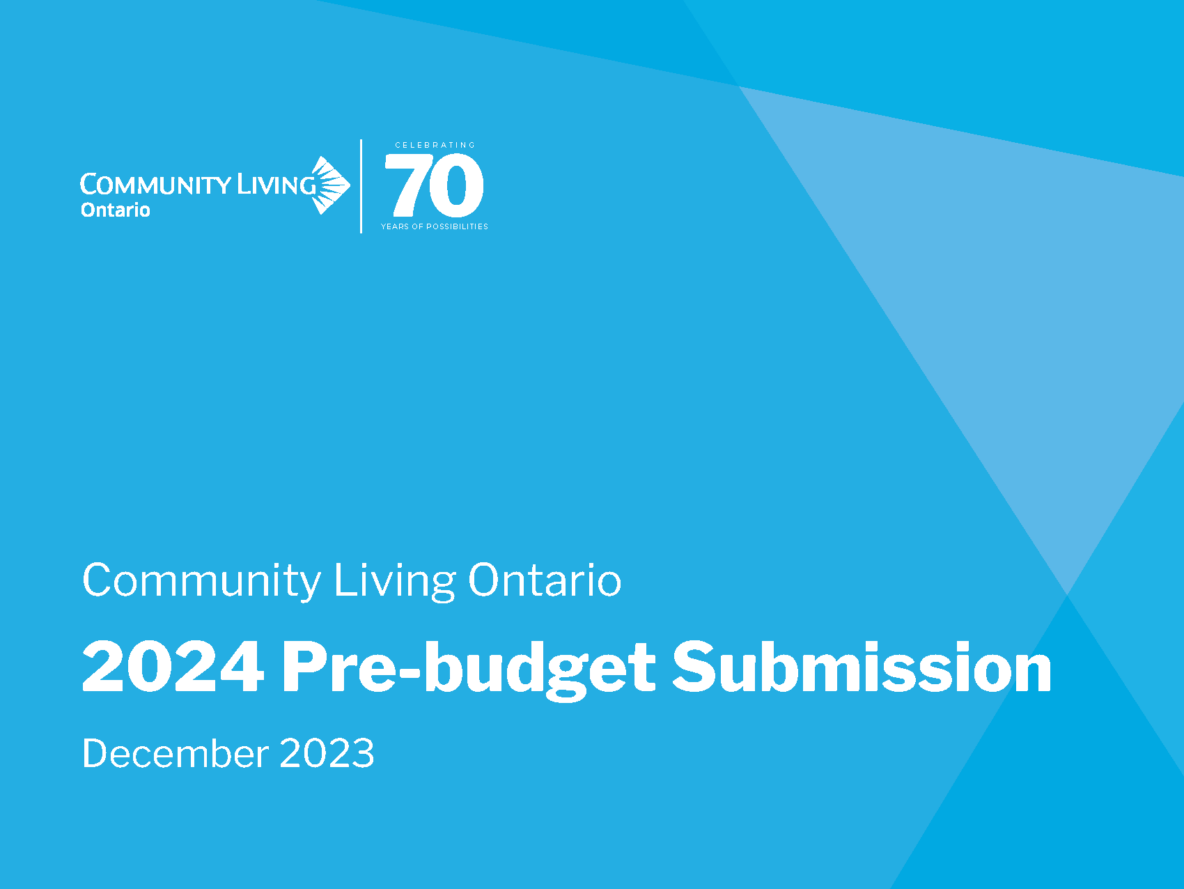In our pre-budget submission to the provincial government, CLO is calling for an immediate base budget increase of five percent for developmental service agencies. Additionally, we are calling for a five percent increase to Passport and Special Services at Home budgets. The submission is part of our #5toSurvive campaign, calling attention to critical underfunding of our sector. If you agree … Read More
Key Changes Announced in the 2022 Ontario Fall Economic Update
On November 14th, the Ford government announced several changes that will affect people who have an intellectual disability in Ontario: Changes to how work income is treated by ODSP People on ODSP will be able to keep up to $1000 in employment earnings every month without having their ODSP amount reduced. Above $1000, they will keep twenty-five cents of every … Read More
Op-ed: When Is a 5% Increase not a 5% Increase?
On September 1st, the Ford Government increased Ontario Disability Support Program rates by 5%. This means that the basic monthly benefit for a single person on ODSP went from $1,169 to $1,228, an increase of about $58 per month. Even with this small increase, ODSP recipients will still have incomes far below the poverty line. And with the exploding … Read More
If Inclusion Means Everyone, Why Not Me?
This report identifies barriers that students labelled with intellectual disabilities and their parents and guardians face in Ontario’s public school system and sets out some key insights into their experiences. The authors identified various factors that influence the quality of a student’s education. DOWNLOAD IN ENGLISH DOWNLOAD IN FRENCH
Direct Funding In-Depth: Learning from New York State’s Self-Directed Services
New York State’s Self-Directed Services is a program that provides funding directly to people and families, so they can manage and control their own disability-related supports. The program provides a helpful case study and offers several lessons for Ontario as we plan to make direct funding a reality in the province. READ THE ARTICLE
Learning from Direct funding in Alberta and British Columbia
Alberta and British Columbia have long-standing and well-developed direct funding programs for people who have an intellectual or developmental disability. As Ontario develops its own stream of direct funding, it is important to learn from the experience of other jurisdictions. READ THE ARTICLE
Community Living Ontario’s Recommendations for Direct Funding for People Who Have Intellectual and Developmental Disabilities
Many stakeholders in Ontario have advocated for direct funding – where people manage and pay for their own supports rather than choosing options offered by a service agency – for several decades. Community Living Ontario supports the growth of direct funding because it has been shown to increase flexibility, control, and quality of life for people and families who choose … Read More
Five Ideas about Housing for People Who Have Intellectual Disabilities
The 2021 federal budget included several welcome announcements about affordable housing, including the Federal Community Housing Initiative and the Affordable Housing Innovation Fund. These programs will add to the already substantial funding provided by the National Housing Strategy, which includes a goal to create 2,400 new affordable housing units for people who have developmental disabilities. As these programs are rolled … Read More
Separating Housing from Disability Supports: An Idea Whose Time has Come?
It is common practice in Ontario for people who have developmental disabilities to access housing and other needed supports from a single service provider. A number of stakeholders have argued that separating the provision of housing from other supports would boost system flexibility and increase people’s ability to obtain a full suite of supports. READ THE ARTICLE
The Myth of Economies of Scale in Developmental Services
It is commonly believed that large congregated residential facilities for people who have developmental disabilities are less expensive to operate than group homes or supported independent living. Yet information from the United States shows that, even for people with high support needs, large congregated facilities are in fact more costly than small group homes or supported independent living. Furthermore, smaller … Read More

